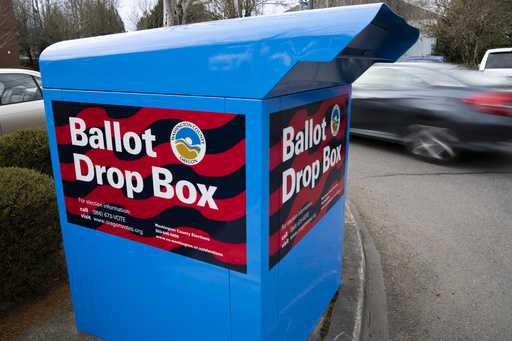LOS ANGELES, Calif., Duncan Wood, president of the Pacific Council on International Policy, says trade negotiations between the U.S. and Mexico are likely to “get very messy” as a result of Donald Trump’s election victory.
Wood, a noted expert on U.S.-Mexico relations, gave his view in an interview with reporter Daniel Rook for Agence France Presse, or AFP. The story, titled “Mexico Girds for Tariffs, Migrant Deportations After Trump Win,” was republished by Barron’s.
The story says Mexico is bracing for potential trade tensions, tariffs and mass migrant deportations that experts say could pose a major test of relations between the closely connected neighbors. It noted that Trump’s win sent the Mexican peso sliding to a two-year low against the dollar as markets prepared for increased trade frictions.
However, Mexican President Claudia Sheinbaum tried to reassure Mexicans that Trump’s victory was “no cause for concern.” She said Mexico and the United States have “a very important economic integration that benefits both countries. It is a strength of both. We do not compete with each other, but on the contrary, we complement each other.”
But Wood pointed out that it is not the first time that Trump has threatened to impose steep tariffs unless Mexico does more to curb migrant flows. He did the same during his last presidency.
“And he got exactly the reaction that he wanted from Mexico,” which sent a high-level team to Washington to negotiate an agreement, Wood said.
“These are credible threats. And Trump is not a free trader. The people around him this time around are not free traders. I think that there is every reason to believe that he would use that kind of threat to get Mexico to do exactly what he wants.”
Trade relations were likely to “get very messy,” according to Wood. He said he does not rule out Trump seeking to renegotiate a regional free trade agreement to obtain better terms.
Rook reported that such uncertainty could throw up a “major hurdle” to Mexico’s efforts to lure US-owned factories from Asia – a trend known as “nearshoring.”
The US-Mexico-Canada trade agreement is due to be renegotiated in 2026.
Wood was one of four experts interviewed by Rook for his story. The other three were Pamela Starr, a professor of the Practice of Political Science and International Relations at the University of Southern California, Gabriela Siller, head of economic analysis for the financial group Banco BASE, and Ramse Gutierrez, vice president at investment firm Franklin Templeton in Mexico City.
Editor’s Note: Click here to read the AFP story in Barron’s.
The post Wood: Trump victory means US-Mexico trade relations could ‘get very messy’ appeared first on Rio Grande Guardian.
 (2).png)
 3 days ago
26
3 days ago
26









 English (US)
English (US)